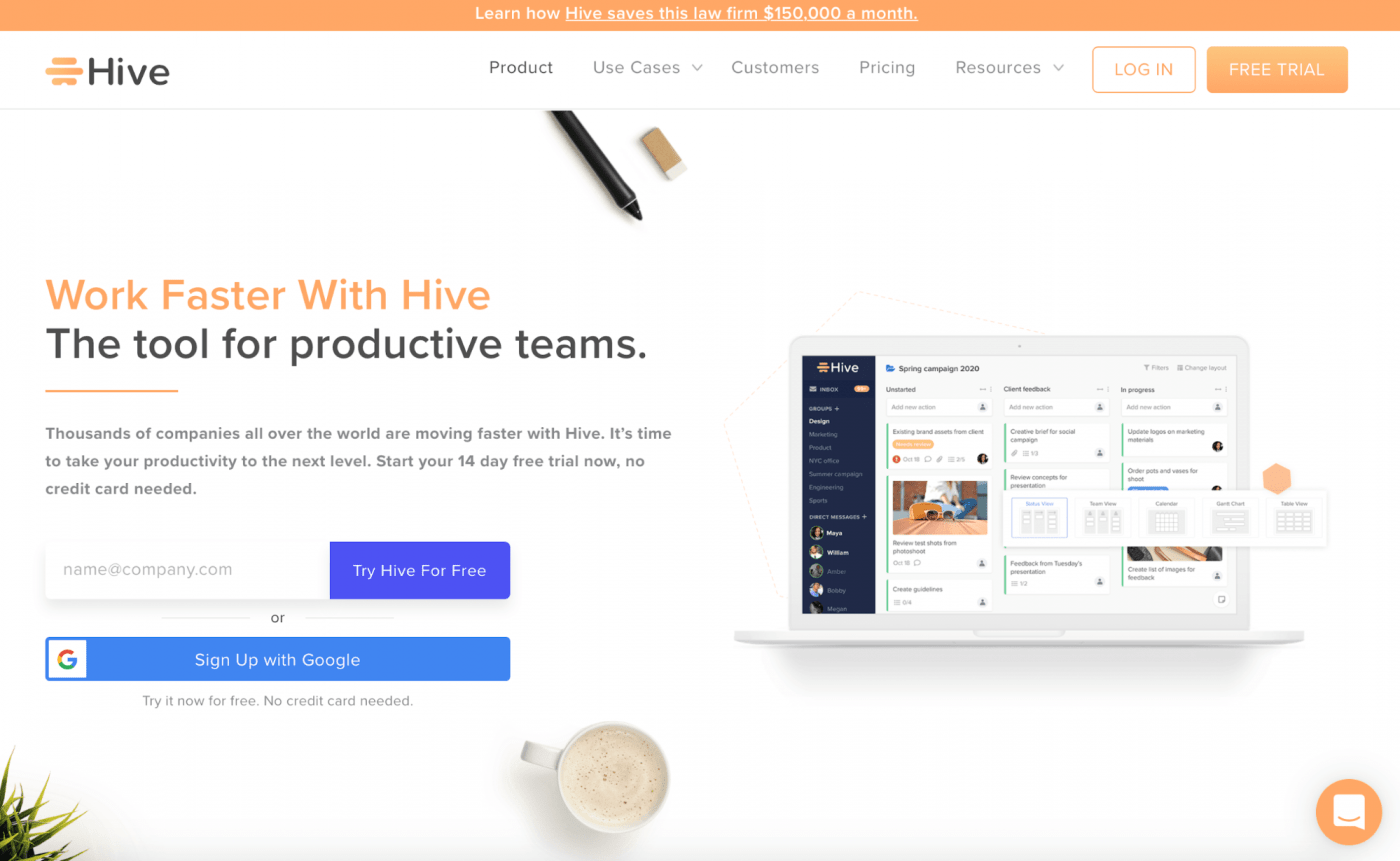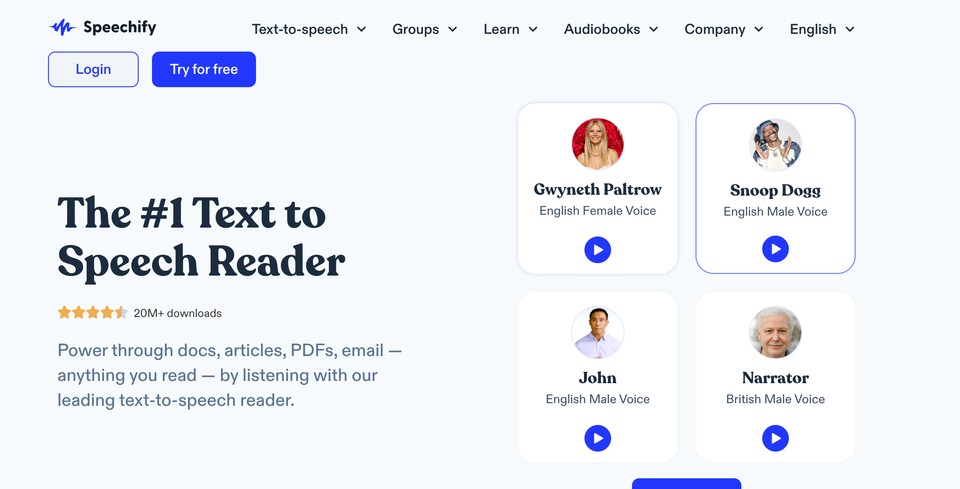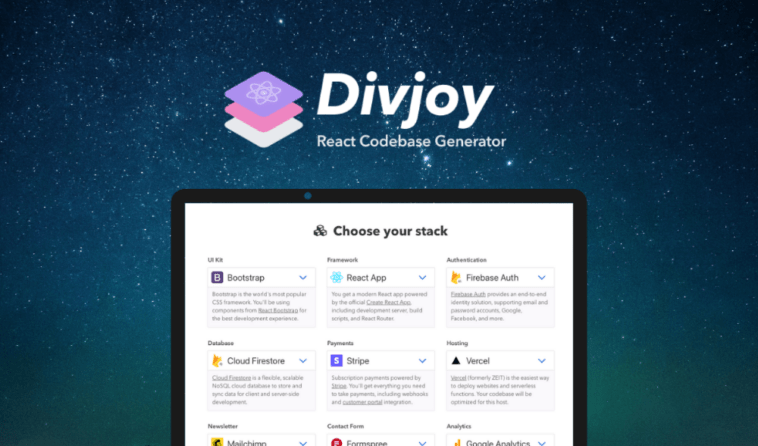This post will explain Hive software. Businesses that use the best Hive software get a significant competitive advantage. Top AI businesses’ software and tools are capable of incredible achievements when used by trained personnel with a defined aim in mind.
In theory, AI and machine learning software may automate corporate procedures, allowing human employees to work more productively and significantly improving customer experience. AI software can digest enormous amounts of data analytics and predictive analytics, allowing your management team to improve their output. AI may take advantage of cloud computing to increase compute power, allowing you to mine data more quickly.
Top 14 Hive Software 2022
In this article, you can know about Hive software here are the details below;
However, there is one undeniable truth about AI software: it is a relatively young technology.
Hive isn’t a new concept; it’s been around for decades. After breakthroughs in the 1980s failed to live up to the hype, AI experienced a “AI winter” in the early 1990s. Dreams of talking robots faded as investment dried up.
However, AI software has seen a surge in investment beginning around 2015. Companies have concluded that if they do not embrace AI by 2020, they would be left behind. Business intelligence is no longer sufficient on its own.
As a result, a slew of companies are looking for AI software. However, the market is unformed, perplexing, changing rapidly, and in some cases peddling vaporware. The predicament is deepened by the fact that many AI vendors are still in their infancy. Buyers frequently lack the sophistication and in-house skill to be thorough, knowledgeable shoppers.
The four primary industries in the AI software sector are expected to fuel exponential growth in the Hive software market in the coming years.
What to Look for When Purchasing Hive Software
Realize Deep Research Is Required When Choosing AI Software
Hive software differs from other software in that the complexity of the technology – software that learns – makes it difficult to completely comprehend how it will function until your team becomes accustomed to it. Sure, every new software application will require some training for your employees, but that new scheduling app won’t be as difficult to learn as software that automates the IT department. When shopping for AI, you’ll want to look at the entire feature set, reviews, and in-depth talks with peers and sales staff. It isn’t easy, so don’t expect it to be. Also check Online PR Software
What Exactly Do You Hope to Achieve?
Perhaps you wish to automate a well defined office process; in that instance, a provider such as a Robotic Process Automation firm will suffice. Or perhaps you simply want to create a chatbot; there are numerous AI alternatives for this. But, whatever you do, be sure you know what you want to achieve before you start purchasing. It’s difficult enough to navigate the AI industry without knowing – precisely – what you want to achieve.
To begin, consider limiting your scope.
Only a small fraction of firms have successfully used AI in the real world (some reports say it’s around 4%, but experts vary). This is something AI suppliers are unlikely to tell you. So, rather than an all-encompassing solution that might bring a company division down as personnel grapples with a perplexing skill set, consider a small start to begin with, one that management and staff can completely understand.
Overall Product Offering of AI Software Vendors
Many businesses purchase AI services from one of the main cloud providers, which all provide a variety of AI services ranging from machine learning to specialist AI automation solutions. The benefit of purchasing AI services from a large cloud vendor is that 1) you know they’ll be around and investing in their product line, and 2) the AI solution will work with the rest of the public cloud’s offerings. The bottom line is that, in the long run, you’re more likely to create a relationship with an AI vendor rather than purchasing a single AI tool. Do they have enough product variety to sustain a long-term partnership?
Concerns about in-house talent
This is a significant one: Hiring AI experts is prohibitively expensive. So, before you buy AI software, make sure your team is prepared to understand and/or tweak it. This leads to another major concern: AI businesses understand that they can’t sell solutions the same way they used to sell shrinkwrapped software. If they want to be in business, they must be willing to provide meaningful customer service. Is your potential vendor’s AI support track record impressive?
Hive (AI) Software of the Year
1.IBM Watson
Key Insight: A long-time enterprise favourite, IBM Watson Key Insight delivers a menu of AI software that covers almost every scenario.
The IBM Watson AI solution is comprehensive, encompassing a comprehensive library of solutions and approaches all aimed at providing AI-powered services or incorporating AI into your systems and applications. This can be as simple as chatbot capability for consumer-facing applications, or as complex as AI-based systems for organising and analysing massive data repositories in more efficient and cost-effective ways. An AI-powered technology that enhances and simplifies IT processes is also offered. IBM’s AI solution, like that of other major competitors in the market, benefits from one of the leading platforms, IBM Cloud. Also check Best Image Stabilization software
2.Engati
Key Insight: A chatbot software leader that can provide proactive responses.
The chatbot, which is Engati’s specialty, is likely the most prevalent usage of AI software in business. AI’s “magic” lies in the fact that it’s a system that can learn and expand on its own after being programmed by humans. This is especially critical for a chatbot, which must understand human interactions as well as the industry vertical (after dealing with the most typical dozen phrases or so). To develop your chatbot, the Engati chatbot platform provides a rapid and very simple AI fabrication (without actual coding). An Engati chatbot can give proactive discussion in addition to the programmed talk that we’re all used with, a nod to the ever-advancing nature of today’s AI development.
3.Wipro Holmes
Key Insight: A leading provider of business process automation with an emphasis on artificial intelligence for enterprise applications.
The foundation of what drives competitive advantage in company today is the automation of previously inefficient and human-driven operations. Wipro Holmes’ key business is the development of automation utilising AI and a data-driven cloud-based engine. Wipro encourages “hyper-automating,” which it defines as the link between the research of AI algorithms and the creation of real-world, applied AI software. For an AI application that resides in a mixed case context, the Holmes offering can construct, monitor, and even perform revenue chores. Pre-built AI assets assist in this procedure. The ultimate intent is to set up a company to hyper scale by utilising AI to drive approaches that are so efficient that it can grow quickly and efficiently.
4.BigML
Key Insight: A strong belief in the power of machine learning, with a wide range of machine learning modelling tools.
BigML is a nice software platform that offers an assortment of machine learning capabilities, allowing users to construct applications that include ML modelling, time series forecasting, and anomaly detection for security. It has a following in the developer and scientific academic sectors. It bills itself as an end-to-end solution that allows customers to transform data into meaningful models that can be embedded, run on-premises, or run remotely in the cloud. This comprises supervised and unsupervised learning, as well as a selection of pre-built machine learning algorithms to expedite the development of usable systems. BigML also has a collaboration framework, allowing teams to work together to create ML models.
5.Ayasdi
Key Insight: Developing machine learning (ML) applications for a wide range of industries, from fintech to research.
Ayasdi’s software platform and collection of applications, which are focused on machine learning, assist firms in developing their own data-driven models for a variety of use cases, ranging from research to security to industrial applications to finance. AyasadiAI, the company’s enterprise solution, uses geometric and statistical algorithms, machine learning, and data analytics to find answers and comprehend trends. The company’s approach essentially provides an AI-powered framework for extracting more value from data. The AI software solution from Ayasdi can be used on-premises or in the cloud. Also check Field Management Service Software
6.TensorFlow
Key Takeaway: Developers prefer this open source machine learning leader.
TensorFlow, which was created by Google, has nearly become associated with machine learning. TensorFlow is notable for being free and open source, and its open format has helped it to expand to a large community of developers, businesses, and scientists and academics. Because of its open architecture, it can be used for calculation by GPUs (graphic processing units, or “super-charged” technology that drives AI) or CPUs (central processing unit, the not-quite-so fast hardware). Tensorflow is undoubtedly the best AI tool for creating and deploying machine learning models in the world.
7.H2O.ai
The emphasis of this insight is on the democratisation of AI.
H20 delivers a comprehensive array of AI software tools with the objective of “AI for everyone.” These incorporate an open source machine learning platform, an open source Spark integration, and a scalable automated machine learning tool called AutoML. H2O Q, which allows businesses to create their own AI apps, is maybe the most intriguing. These AI apps include a variety of dashboards that are updated in real time and may be received from a variety of sources, allowing for Hive -based data storytelling.
8.Infosys Nia
Key Insight: A wide range of AI solutions for business use.
The Nia platform, which specialises in machine learning, deep learning, and data management, enables businesses to integrate AI systems into their internal infrastructure. Nia’s AIOps platform integrates AI and automation into IT operations. DocAI, a product of the company, uses natural language processing and smart search to handle large volumes of business documents more quickly, resulting in faster data access. Similarly, Nia’s Contracts Analysis uses machine learning to scan and “read” thick legal texts in a trace of the time it would take a human to do so. In other words, Nia is utilising AI to help her ingest data more quickly and turn it into useful information.
9.Google AI
Key Insights from the Google AI Platform: One of the most comprehensive AI software toolkits from a thought leader in the field.
Consider the Google AI Platform, which is powered by the Cloud Cloud Platform, as a set of tools for turning an idea into a full-fledged Hive software solution. TensorFlow and TPU, or Tensor Processing Units, are two tools in the open source Google AI toolkit. TPU is an AI accelerator developed by Google. This, combined with Kubeflow and other essential AI and ML tools, allows businesses to create their own AI installations that can run on-premise or in the Google Cloud without requiring significant code changes. In essence, you develop your own AI using Google AI’s software-hardware environment, which is regularly upgraded.
10.Azure Machine Learning
Azure Machine Learning provides a complete ML development environment. Azure ML, which is vying for market share in an increasingly competitive sector of machine learning suppliers, is offering its comprehensive ML platform with no upfront expenses and a “pay only for what you use” model. MLOps, which may be thought of as DevOps for machine learning, is part of the Azure toolkit and dramatically enhances the ML process. Azure also includes a comprehensive set of tools for protecting and managing your data, with the goal of eliminating biases that affect the ML model’s conclusions. The Azure ML solutions are, of course, fully interoperable with the Azure cloud, which is a significant benefit for this AI toolkit.
AI Software: Another Market Leader in AI Software
11.Valohai
Valohai can be thought of as a meta AI tool that aids machine learning projects in moving faster and more efficiently. From compliance to testing, the company’s technology can automate MLOps. Valohai takes an open approach to streamlining a variety of ML team duties and processes.
12.Cognitive Scale
The Cognitive Scale (CS) is a tool that assesses your ability to think
The AI Trust Index is created by Cognitive Scale’s Cortex Certifai solution, which tries to evaluate a variety of characteristics linked to risks in data models. This includes issues like explainability and bias, which are becoming increasingly important as AI plays a larger role in business and culture.
13.Birdeye
Birdeye provides customer experience management using a variety of AI and machine learning-enhanced products. Its mission is to help businesses improve their internet presence, from gathering reviews to converting sales leads.
Customer sentiment analysis and an NLP engine dubbed Athena are two of the tools, which can overrule ML insights as needed depending on the circumstance.
14.DialogFlow
Natural language processing (NLP) is a commonly used word in AI terminology, referring to a machine system that can interpret (or make a copy of) real human speech in all of its idiosyncrasies. Dialogflow builds on this by providing natural language understanding, or the capacity to convert AI processing into human language. Google bought DialogFlow in 2017, although it’s still a separate product.





















Add Comment